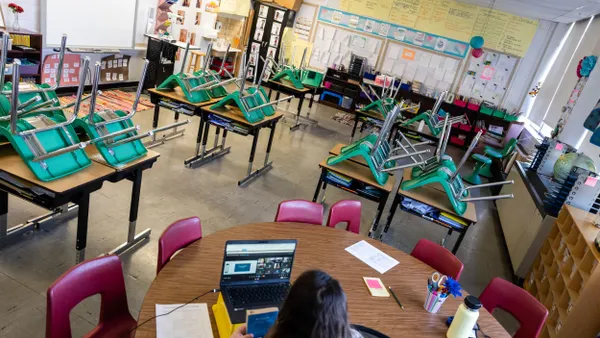Dive Brief:
- A federal judge has ruled that tax-exempt private schools are subject to the same federal Title IX requirements as public schools.
- In Buettner-Hartsoe v. Baltimore Lutheran High School Association, five former female students sued Concordia Preparatory School — formerly known as Baltimore Lutheran High School — over allegations that school leaders did not adequately address complaints of sexual assault and sexual harassment dating back to 2016. The plaintiffs argued the school’s tax-exempt status amounted to federal financial assistance at a level that subjected it to the same Title IX requirements as other educational institutions.
- The late June ruling by U.S. District Judge Richard Bennett could have implications for private and independent schools nationwide, particularly in regard to informal resolutions of sexual harassment disputes and anonymous participation or confidentiality of information in those disputes, Brigid Harrington, an employment and labor attorney with Bowditch & Dewey, wrote in an analysis published by JD Supra.
Dive Insight:
The ruling holds institutions with tax-exempt status to the same standards for preventing sex-based discrimination under Title IX as they are held to for preventing race-based discrimination under Title VI, Harrington wrote. Title IX is the federal law banning sex-based discrimination by schools or education programs that receive federal funds.
Additionally, Harrington noted, the decision falls in line with the U.S. Supreme Court’s 1983 decision in Regan v. Taxation with Representation, which found federal tax exemptions — such as those granted to corporations, foundations and organizations defined as operating “exclusively for religious, charitable, scientific, testing for public safety, literary, or educational purposes” under U.S. tax code — amount to “a form of subsidy” equal to a cash grant.
Title IX historically has not applied to nonprofit independent schools unless they accept certain federal funds, according to Myra McGovern, vice president of media at the National Association of Independent Schools. “Many independent schools choose not to participate in programs that are considered federal financial assistance because the accompanying regulations require resources that small schools simply do not have,” McGovern wrote in an email.
While Title IX hasn’t applied to most independent schools, McGovern said, those schools have still focused on the safety of their students and “promulgated robust sexual harassment and anti-discrimination policies.”
“The ruling in Buettner-Hartsoe fundamentally alters the legal analysis for schools in this jurisdiction and could have a profound impact on independent schools,” McGovern said.













